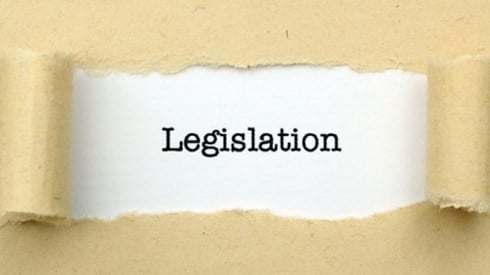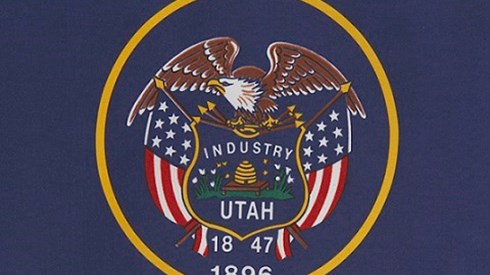COVID-19 Pandemic Slows Pace of Captive Insurance Law Updates

June 01, 2020

While the COVID-19 pandemic has slowed state legislatures' updates of their captive insurance statutes this spring, some states have moved forward in 2020 and passed captive legislation.
The most recent state to act is Vermont, where lawmakers on May 29 gave final approval to legislation, S. 255, that makes several changes to the state's captive statute.
Among the changes are revisions to provisions for captive insurance companies to go dormant. Under current law, a captive that goes dormant is required to maintain $25,000 in capital and surplus. Under the new legislation, that $25,000 minimum requirement would be waived if a captive seeking dormancy had never been capitalized.
"That makes sense. If a captive is not up and running, there is no need for cash," said Mary Desranleau, senior vice president—captives, North America, with Artex Risk Solutions in Burlington, Vermont.
In addition, the legislation, which Governor Phil Scott signed June 15, will reduce to $100,000 from the current $250,000 the amount of minimum capital—known as "core capital"—required for sponsored cell captives.
"Since the core cannot be accessed by the cells, which have their own capital commensurate with their risk, $250,000 is not really needed for regulatory purposes," according to an earlier analysis by the Vermont Captive Insurance Association.
Another state to recently act is Oklahoma, which approved legislation, HB 3864, in May that directs how the state insurance commissioner will distribute premium taxes paid by captive insurance companies.
For example, of the first $500,000 in paid premium taxes, 45 percent will go to the state's General Revenue Fund, followed by 36 percent distributed to the Oklahoma Firefighters Pension and Retirement Fund, with the remaining amount of captive premium taxes going to the Oklahoma Police Pension and Retirement Fund and the Law Enforcement Retirement Fund.
The next $250,000 in premium taxes will go to the Oklahoma Insurance Department (OID), as well as 30 percent of premium taxes exceeding $750,000.
Oklahoma state regulators say the shifting of a portion of captive insurance premium taxes, which last year topped $506,000, to the Oklahoma Insurance Department, could lead to more captive growth.
"The reallocation of the Oklahoma captive premium tax will assist the OID Captive Division's growth to a level necessary to become more competitive in the market. It has been one of my goals since taking office to increase the number of captives we have in our state," said Glen Mulready, commissioner of the Oklahoma Insurance Department in Oklahoma City.
Further changes to the Oklahoma captive insurance statute may lie ahead. "We are working towards advancing statutory incentives, including a dormant captive provision, making it more attractive for captives to come to Oklahoma," Mr. Mulready said. Currently, Oklahoma has 47 captives.
Other states also have amended their captive insurance statutes. Utah lawmakers approved legislation earlier this year that allows Utah captives—after obtaining the approval of the state insurance commissioner—to reinsure risks ceded by any other insurer.
That is a major change from prior law in which Utah captive insurance companies could only reinsure risks ceded "for the benefit of parent, affiliate, or controlled unaffiliated business."
Utah's top captive regulator strongly backs the change.
"A key consideration for us in allowing Utah captives to reinsure pure third-party risk was to facilitate an additional avenue for captives, particularly smaller ones, to achieve risk distribution. With this change, pooling is no longer the sole option," said Utah Captive Director Travis Wegkamp in Salt Lake City.
In addition, the new law "gives the opportunity for business owners that provide a quality product or service to reap the rewards of insuring or warranting that to their customers. While normally a captive insurer could never provide an insurance product to their parent company’s customers, these business owners can now partner with a traditional insurer to provide this coverage to the customers and then cede that risk to their own captive as the assuming reinsurer. It's a fantastic opportunity that several other captive jurisdictions already allow, and we believe it to be a good fit here in Utah as well," Mr. Wegkamp said.
In some captive domiciles, state lawmakers did not complete action on captive legislation before adjourning.
For example, in Alabama, which has 74 captives, the Alabama House of Representatives approved a measure, HB 220, which would have allowed so-called branch captives to fund all coverages. That would have been a major change from current law, which limits branch captives to writing employee benefit coverages that are subject to a major federal benefits law: the Employee Retirement Income Security Act (ERISA) of 1974.
The measure, which the Alabama Senate did not act on before ending its legislative session in May, also would have formalized an existing regulatory practice under which a dormant captive can retain its license for up to 5 years after it stops doing business.
Some captive regulators say that even though state lawmakers did not consider captive update legislation during the current legislative session, that could change next year.
For example, in Arkansas, which had nine captives at the end of 2019, lawmakers did not consider captive legislation in 2020 because only fiscal-related measures are considered in even years. However, in preparation for the 2021 legislation session, later this year the Arkansas Insurance Department is expected to review the state's captive statute for any needed updates.
Representatives of some captive insurance domiciles noted that lawmakers did not make legislative changes this year to captive statutes for a very practical reason: they did so last year.
For example, in 2019, lawmakers in Georgia, which had 52 captives at the end of last year, approved a measure allowing cell captives, as well as setting new requirements for captives to go into dormancy.
"A significant bill was passed last year updating our state's statutes. The industry in Georgia is very happy with the changes. With that being said, there is not a major need for additional captive legislation at this time," said a spokesman at the Georgia Office of Insurance and Safety Fire Commissioner in Atlanta.
And in other cases, state lawmakers put captive insurance and other legislation aside because of the novel coronavirus.
"Many things were put on hold," said Dan Towle, president of the Minneapolis-based Captive Insurance Companies Association, adding that captives continue to be licensed and licensing remains very strong.
June 01, 2020


